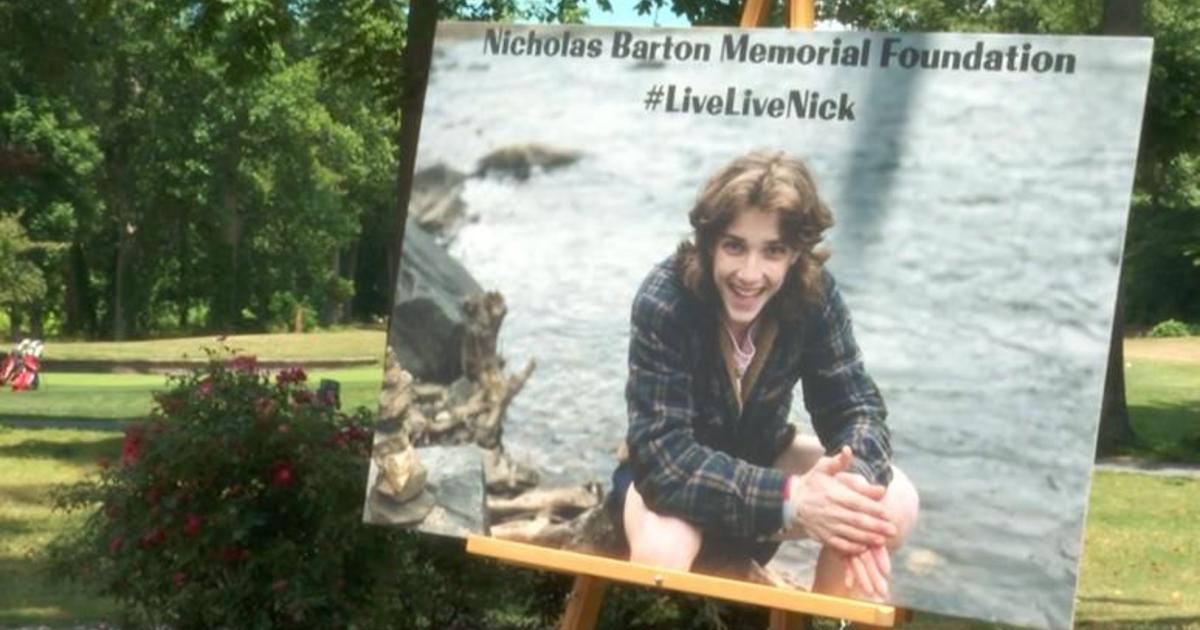Manning Arguments Wrap Up; Judge To Deliberate
FORT MEADE, Md. (AP) -- Army Pfc. Bradley Manning's fate was in the hands of a military judge Friday after nearly two months of conflicting portrayals of the soldier: a traitor who gave WikiLeaks classified secrets for worldwide attention and a young, naive intelligence analyst who wanted people to know about the atrocities of war.
Judge Col. Denise Lind started deliberating on the 21 charges Manning faces, but she did not say when she would rule, only that she will give the public one day's notice before her announcement. The most serious charge is aiding the enemy, which carries a potential life sentence in prison.
During closing arguments, defense attorney David Coombs said Manning was negligent in releasing classified material, but he did not know al-Qaida would see the material and did not have "evil intent," a key point prosecutors must prove to convict Manning of aiding the enemy.
Prosecutors contended Manning, 25, knew the material would be seen across the globe, even by Osama bin Laden, when he started the leaks in late 2009. Manning said the leaks didn't start until February the following year.
"Worldwide distribution, that was his goal," said the military's lead prosecutor, Maj. Ashden Fein. "Pfc. Manning knew the entire world included the enemy, from his training. He knew he was giving it to the enemy, specifically al-Qaida."
After Coombs finished his three-hour argument, there was a smattering of applause from Manning supporters, who were quickly hushed by the judge.
"All right, that's enough," Lind said. "This is a court of law. I would ask, please, that you keep your reactions muted."
Meanwhile, one of Manning's most visible supporters was banned from the trial Friday after the judge said someone posted threats online. Clark Stoeckley, a college art instructor from New Jersey, confirmed he was the one booted.
Stoeckley attended the court-martial as a sketch artist, arriving each day in a white box truck with bold words painted on the sides: "WikiLeaks TOP SECRET Mobile Information Collection Unit."
A tweet Thursday night from an account Stoeckley used said: "I don't know how they sleep at night but I do know where." It was removed Friday and Stoeckley told The Associated Press on Twitter he couldn't comment.
Inside the courtroom, a few spectators smiled -- as did Manning -- when Coombs mocked a former Army supervisor who testified last week that Manning told her the American flag meant nothing to him and that she suspected before they deployed to Iraq that Manning was a spy. Coombs noted she had not written up a report on Manning's alleged disloyalty, though had written ones on him taking too many smoke breaks and drinking too much coffee.
Manning also faces federal espionage, theft and computer fraud charges. The Crescent, Okla., native has acknowledged giving WikiLeaks some 700,000 battlefield reports, diplomatic cables and videos. But he says he didn't believe the information would harm troops in Afghanistan and Iraq or threaten national security.
Coombs' courtroom style was usually deferential and mild-mannered, but he ratcheted up his comments for the closing arguments.
Coombs called the government's final remarks "a diatribe ... fictional ... fantastical," and said it leaped to conclusions and contradicted itself in areas where prosecutors could not prove something with facts.
Coombs also countered one of prosecutor Fein's arguments that attempted to show Manning was seeking fame: A photo Manning took of himself, smiling in front of a mirror while on leave in Maryland. Fein said it showed a "gleeful, grinning" Manning who was proud to have leaked documents and be "on his way to notoriety" he wanted.
Coombs asked the judge to take a closer look at the photo, pointing out that Manning was wearing makeup and a bra.
"What you see is a young man who is cross-dressing," Coombs said as Manning's face tightened slightly in a pained look.
"Maybe, just maybe ... he is happy to be himself for that moment," Coombs said of Manning's struggle to fit into the military at a time he was confused about his gender identity and serving openly was illegal for gays.
Coombs also showed three snippets of video from a 2007 U.S. Apache helicopter attack Manning leaked, showing troops firing on a small crowd of men on a Baghdad sidewalk, killing several civilians, including a Reuters news photographer and his driver. Coombs said the loss of civilian lives shocked and horrified the young soldier.
"You have to look at that from the point of view of a guy who cared about human life," Coombs said.
WikiLeaks founder Julian Assange said Friday in a telephone press conference that if the aiding the enemy charge is allowed to stand, it will be "the end of national security journalism in the United States."
He accused the Obama administration of a "war on whistleblowers" and a "war on journalism."
The verdict and any sentence will be reviewed, and could be reduced, by the commander of the Military District of Washington, currently Maj. Gen. Jeffery S. Buchanan.
------
Associated Press writer Jessica Gresko in Washington contributed to this report.
(Copyright 2013 by The Associated Press. All Rights Reserved.)



